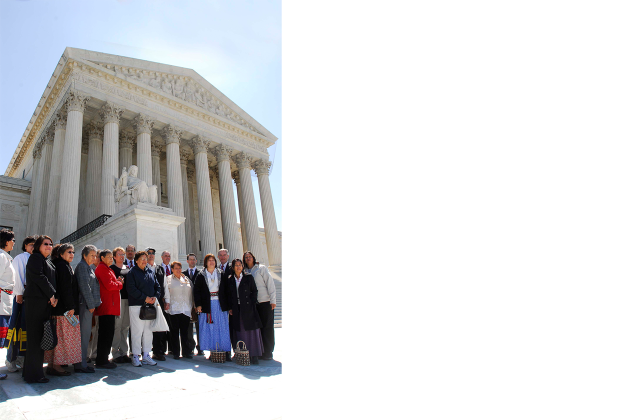Phil Katzen, who founded the firm, with Riyaz Kanji in 2000, has retired from the Washington State Bar Association. He will continue to assist the firm in a consultant capacity on administrative and other matters.
Phil has had a long legal career dedicated to protecting, enforcing, and upholding Tribes’ treaty rights, first at the Native American Project at Evergreen Legal Services (known today as Columbia Legal Services) and later at Kanji & Katzen. Phil spent over three decades of his career working to secure and implement Tribes’ treaty right to take a fair share of shellfish from public and private property in United States v. Washington, the long-running treaty fishing rights case. His involvement with the case started with a memorandum on the Tribes’ shellfish treaty right in 1979. He subsequently represented the Tribes in multi-year negotiations with the State of Washington regarding this treaty right throughout the 1980s, represented the Tribes in litigation to secure this right in the 1990s, and represented the Tribes during implementation of the shellfish treaty right after it was established by the Court.
Phil is known in the Indian Law bar for his commanding knowledge of the law surrounding treaty rights in Washington, his strategic mind, and his generous mentoring of less-experienced attorneys. The firm is fortunate that Phil will continue in a consultant role.
Phil looks forward to serving the firm in his new capacity. He is also excited to continue to spend time with his new grandchild, to play pickleball with his wife and community, and to serve on the board for various nonprofits.
